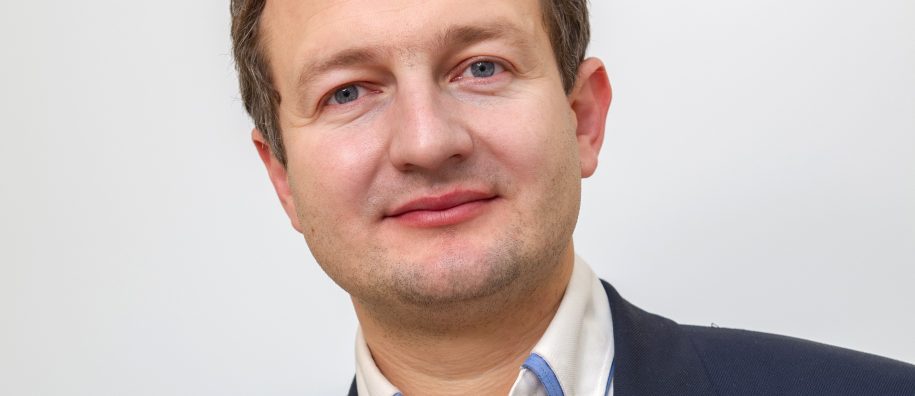
According to a "Barrett Values Centre" survey undertaken in 2020, researchers studied people's levels of anxiety and possible stress resilience during the COVID-19 pandemic. People who were more psychologically resilient, focused more on their personal well-being: healthy living, recreational and extracurricular activities. It really makes you think about your psychological health and resilience to stress, which is especially important when working remotely and with declining social connections. So what happens to us when we feel stressed? How can we help ourselves? MRU researcher Prof. Danielius Serapinas of the Institute of Psychology advises what to do to leave a more stress-free life.
Chronic Stress Causes Long-term Neurobiological Changes
Stress itself is not a negative process. The stress mechanism, described by scientist Hans Selje, explains that it helps the body adapt to a changed situation. During stress, the adrenal glands secrete cortisol. Mediators (adrenaline, noradrenaline) of the sympathetic nervous system (NS) mobilize glucose and fatty acids, activate cardiac activity and other systems to fight stress and alleviate the stress-induced condition. As a result, much also depends on our response to stressors. So, if the stressful situation does not go away, the prolonged stress starts to harm the body. However, chronic stress through the mental-physical relationship causes long-term neurobiological changes: a predisposition to mood and sleep disorders, overeating and other unhealthy factors including lack of control, structural changes in the central nervous system and various diseases.
According to MRU Professor Serapinas, even an increase in blood cholesterol is a consequence of stress, not overeating. More than 70% of cholesterol is produced by the body itself. With food we get only a third of the cholesterol circulating in the bloodstream. The stress hormone cortisol stimulates the production of nutrients and energy, as well as cholesterol. Also, the role of the autonomic nervous system is very important, because during stress, blood glucose rises, arterial blood pressure increases, the pulse rate increases and oxidative processes in the cell membranes intensify. And this also increases the risk of chronic inflammatory diseases (especially of the joints). In addition, stress and negative emotions suppress a person’s immune defenses. Various stressful situations, such as exams, can lead to immune changes that increase the likelihood of developing infectious diseases. The link between depression and the immune system has also been proven. Depression and frustration (despair) and negative emotions cause disorders of the immune system. This increases the risk of contracting an infectious disease and activating inflammatory processes, prolonging the recovery time of the body after an illness.
A person under stress is forced to live on autopilot in order to avoid continuous speeding up and stopping mode. He just quite literally "drives" (lives and operates) at the same pace. For this reason, we don't see what is happening around us. Such an "autopilot"mode is very useful for a person's health because much of what we do, we simply do automatically. But in psychological activity, it deprives a person of the opportunity to observe his state, to feel what he is doing. Therefore, to feel the joy in our activities (both personal and professional) we must be conscious. At this time, dopamine is released in the brain, causing a sense of pleasure. This feeling is lost during "burn out" syndrome: a person goes to work every day, executes his duties well, results are good, but he is not happy with what he is doing. He is doing it all automatically. That is why it's important at one time to undertake only one activity. Avoid multi-tasking. Also, a person's specialty (or his activity) choice based on his talent is one of the most important conditions for personal happiness. Only an enjoyable job and a love of what you do will result in happiness and satisfaction. To work in a job "not of your liking" is difficult. Your interest disappears and you become tired more quickly.
How can you monitor yourself and help yourself?
So much depends on a person's reactions to stress factors so stress management techniques are key to dealing with stress. Adaptive mechanisms are also important in reducing the effects of stress on the body. For example, some physical exercises help manage stress. One of those ways is managing your breathing and doing it slowly. Also, a cold shower helps or even singing.
According to Psychology Institute Prof. Serapinas, working remotely and trying to avoid stress, it is important to limit the number of virtual meetings and to try to take work breaks during the day. Every 1,5 hours it is necessary to take a 15-30 minute break. At that time, there is a reduction in the negative effects of sitting in a chair - on your body. Also, it's important to know stress management techniques helping to change our reactions to events.
Professor Serapinas noted that stress prevention is very important to the thought processes of people. During the day, it is good to notice what was positive and to form a sort of "positive" diary of the day.
Other hints he offered included:
- As the day ends, undertake "gratitude rituals" to be thankful for events and people you've met;
- Avoid thinking in "black-white" mode because this type of thinking leads to perfectionism;
- Draw a line between the end of the work day and your extracurricular activities;
- Spend time outdoors as this helps to rejuvenate the body and mind and help prepare for a productive work day.